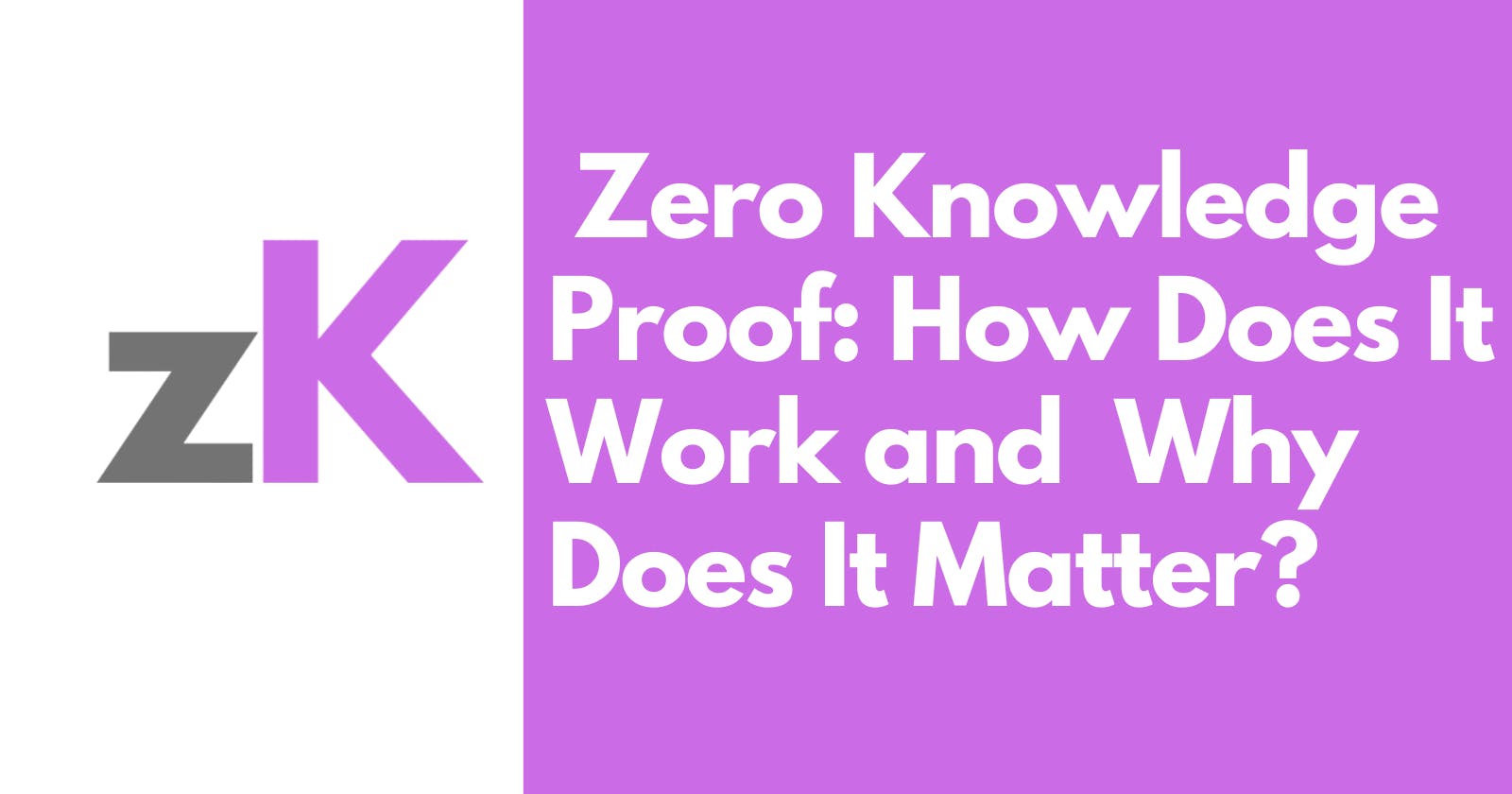Understanding Zero Knowledge Proof: How Does It Work and Why Does It Matter?
Table of contents
What is Zero-knowledge?
Zero Knowledge Proof (ZKP) is a cryptographic technique that allows a party to prove that they know a secret without revealing the secret itself. Without disclosing the hidden details, you may convince others that you possess them.
ZKP has a wide range of applications including authentication, identity verification, and data privacy. Some examples include proving that you are over 18 without revealing your exact age, proving you have enough funds to purchase without revealing your account balance, and proving ownership of a digital asset without revealing any identifying information.
How Does It Work?
ZKP is based on a mathematical concept called a one-way function. A one-way function is a function that is easy to compute in one direction but difficult to compute in the opposite direction. For example, multiplying two prime numbers is easy, but factoring a large number into its prime factors is difficult
In ZKP, the prover and verifier engage in a protocol where the prover convinces the verifier that they know a secret without revealing the secret itself. The protocol involves several steps, including the selection of a random value by the prover, the generation of a commitment by the prover, and the verification of the commitment by the verifier.
One example of a ZKP protocol is the Schnorr protocol, which involves the prover selecting a random value, computing a commitment value based on the secret and the random value, and sending the commitment value to the verifier. The verifier challenges the prover to reveal the random value used to compute the commitment, and the prover responds with the value. The verifier then checks that the commitment value matches the secret value and that the random value matches the commitment value.
Why Does It Matter?
ZKP has many practical applications, particularly in the field of digital identity and privacy. By enabling parties to prove knowledge of a secret without revealing the secret itself, ZKP can enhance the security and privacy of sensitive data. For example, ZKP can be used to enable anonymous authentication, where a user can prove their identity.
I hope this article gave a sneak peek into Zero-knowledge, a new article will be about types of zk proofs, how to build Zk applications and many more informative tutorials so stay tuned, If you liked this article give it a heart, and if there are any suggestions/questions feel free to use the comments sections.
